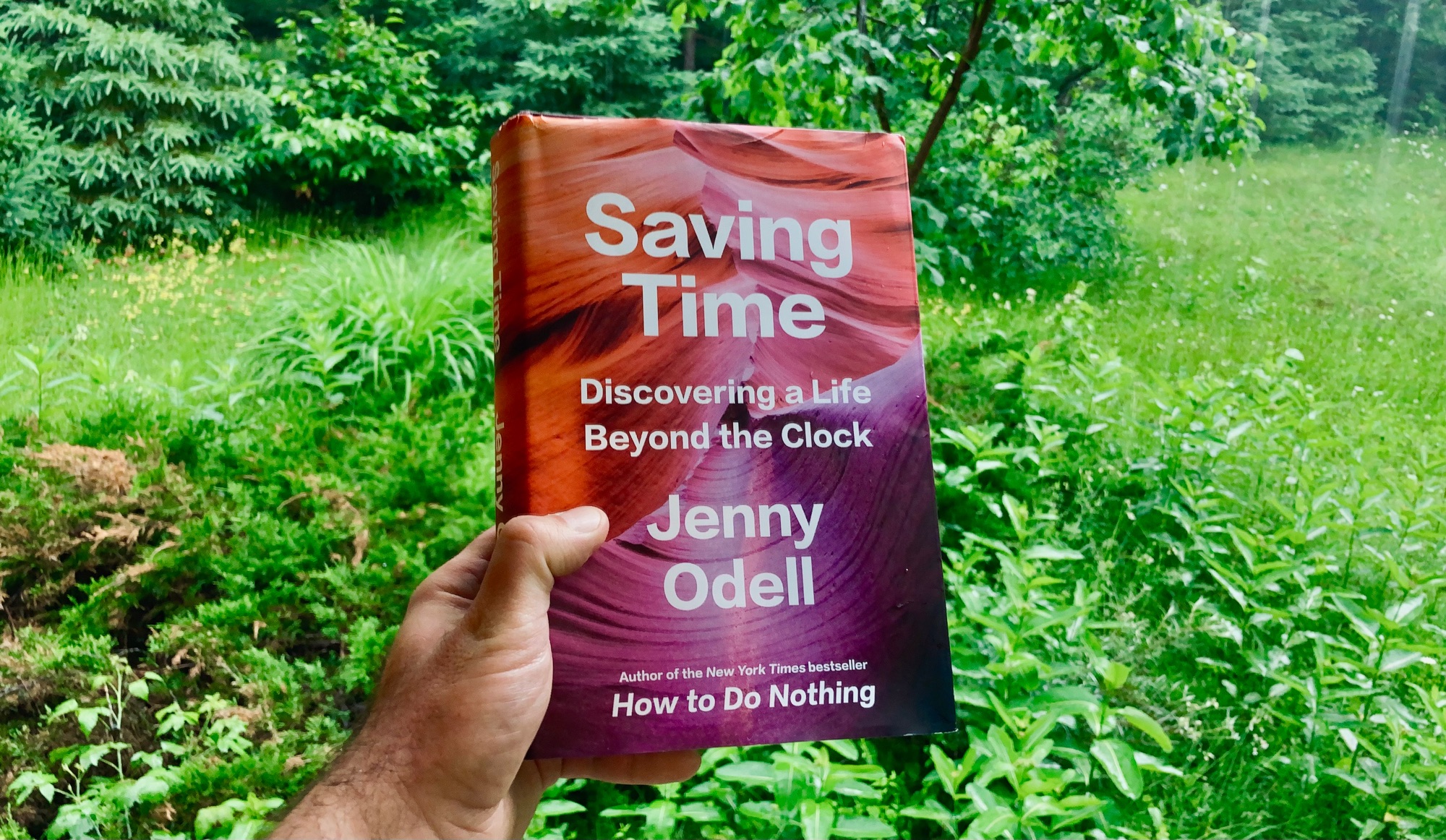Book: Saving Time

Much like her previous book, How to do Nothing, Jenny Odell seems to have a knack of picking topics that are incredibly timely (forgive the pun). Seeing as we’ve all collectively gone through the time dilation of the Covid-19 pandemic, this topic feels perfect for the current moment.
Like How to do Nothing, this book reads as a patchwork of loosely-connected ideas and references based around the central theme. To be honest, it reads almost more like a blog—jumping between historical events, philosophers, magazine articles, and even at one point going so far as to recount a comedy sketch from I Think You Should Leave which was loosely related to the chapter at hand. The book manages to build up these scattered and nonlinear thoughts and observations into something bigger, though I think some readers may not be as forgiving of the lack of structure.
The subject of how people experience and interpret time is a topic not unfamiliar to this blog. In the early pages Odell discusses Ancient Greek views of time:
In Ancient Greek, there are two different words for time, chronos and kairos. Chronos, which appears as part of words like chronology, is the realm of linear time, a steady, plodding march of events into the future. Kairos means something more like “crisis,” but it is also related to what many of us might think of as opportune timing or “seizing the time.” At the climate event, Salami described kairos as qualitative rather than quantitative time, given that, in kairos, all moments are different and that “the right thing happens at the right point.” Because of what it suggests about action and possibility, I too have found the distinction between chronos and kairos to be crucial when it comes to thinking about the future.
And finally, Odell touched on this again in an excerpt she included from the book Sand Talk: How Indigenous Thinking Can Save the World, which feels very much at home with with this previous post:
Explaining Aboriginal notions of time is an exercise in futility as you can only describe it as “nonlinear” in English, which immediately slams a big line right across your synapses. You don’t register the “non” only the “linear”: that is the way you process that word, the shape it takes in your mind. Worst of all, it’s only describing the concept by saying what it is not, rather than what it is. We don’t have a word for nonlinear in our languages because nobody would consider traveling, thinking, or talking in a straight line in the first place. The winding path is just how a path is, and therefore it needs no name.
Odell’s book is about much more than this, though these parts resonate with recent themes here. The book also covers capitalist views of time based from the early days of the Industrial Revolution, time zones, biological time, aging, and a lot more strands woven into one (somewhat messy) tapestry.